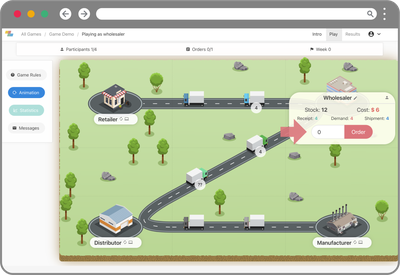What is Supply Chain Management?
Supply Chain Management is the people and processes that manage the flow of goods and services throughout a global or domestic supply chain within a business or organization. This includes, but is not limited to, operations managing the logistics of moving and transferring raw materials, product and information from point of origin to the end customer via internal/external factories, warehouses, transportation services, etc.
It is claimed that the term supply chain management (or SCM) was first used by British logician and consultant Keith Oliver in an interview with the Financial Times. The term was meant to highlight the importance of coordination and collaboration between various departments within an organization, and extending to suppliers, external service providers and clients, whereas previously each area (warehouses, transportation, purchasing, etc.) operated independently from the others.
The objective of SCM is to optimize the supply chain to fulfill demand by the most efficient ways and means possible in terms of cost, time and quality of products and services. Therefore, supply chain management is a constantly evolving concept with nearly unlimited potential for continuous improvement as managers, researchers and consultants continue to seek areas of improvement.
The role of a supply chain manager is to plan, control and monitor the processes and execution of a company’s supply chain operations. Tasks include, but are certainly not limited to, sales forecasting, orders, inventory management, manufacturing capacity—both internal and external—as well as selecting the best software for decision-making and operation execution. Supply chain software can provide digital support in areas such as MRP (material requirements planning), ERP (enterprise resources planning) or BI (Business Intelligence).
Teaching ** Supply Chain** has never been so easy!
Easily and quickly explore and explain Supply chain challenges with your team through this interactive and funny Supply Chain simulation.


Why is Supply Chain Management important?
Globalization and international competition has led to the increased fragmentation of global supply chain operations due to pressures to reduce costs and add more value. This trend also results in the need to better manage and control the many flows in order to avoid shortages, overstock and optimize performance. Therefore, supply chains are attracting more attention and gaining prominence within companies’ organizations.
In order to master supply chain management for meeting the demands of modern supply chain operations, managers in various departments—manufacturing, sales, marketing, planning, etc.—must actively practice and evolve their skills. Not only do they need to be familiar with key supply chain concepts, but they also need to understand the tremendous impact they can have through effective supply chain design, collaboration and information sharing, which requires continuous training and practice.
New and emerging supply chain software further supports supply chain managers in managing complex systems, but this also comes with the necessary knowledge and training for how best to configure these, along with improving decision making at every level to have the greatest positive impact on operations.
How can you improve Supply Chain Management skills?
Key elements of optimizing supply chain management include essential understanding of supply chain concepts, along with measuring and improving operational performance in every department. An extremely effective, proven way to educate, train and practice is through gamification. Playing games makes it easier to engage participants and teach them about the overall end-to-end supply chain, break down silos and put these lessons into practice.
Zensimu’s supply chain games and simulations explains supply chain fundamentals, such as the flow of supply and demand, allowing players to start from the basics and understand core client-supplier relationships.
Discover our Supply chain Simulation:

As players progress, game hosts can introduce increasingly complex supply chain concepts and paradigms, such as bullwhip effect, demand forecasting, planning tools and methods, etc. This all occurs in Zensimu simulations’ competitive environments and game play, where players both compete and collaborate to ultimately increase revenue and decrease costs, while discovering key parameters that impact supply chain performance.
Turn Complex Supply Chain Concepts learnings into tangible and easy-to-learn notions!
Easily and quickly explore and explain Supply chain challenges with your team through this interactive and funny Supply Chain simulation.

